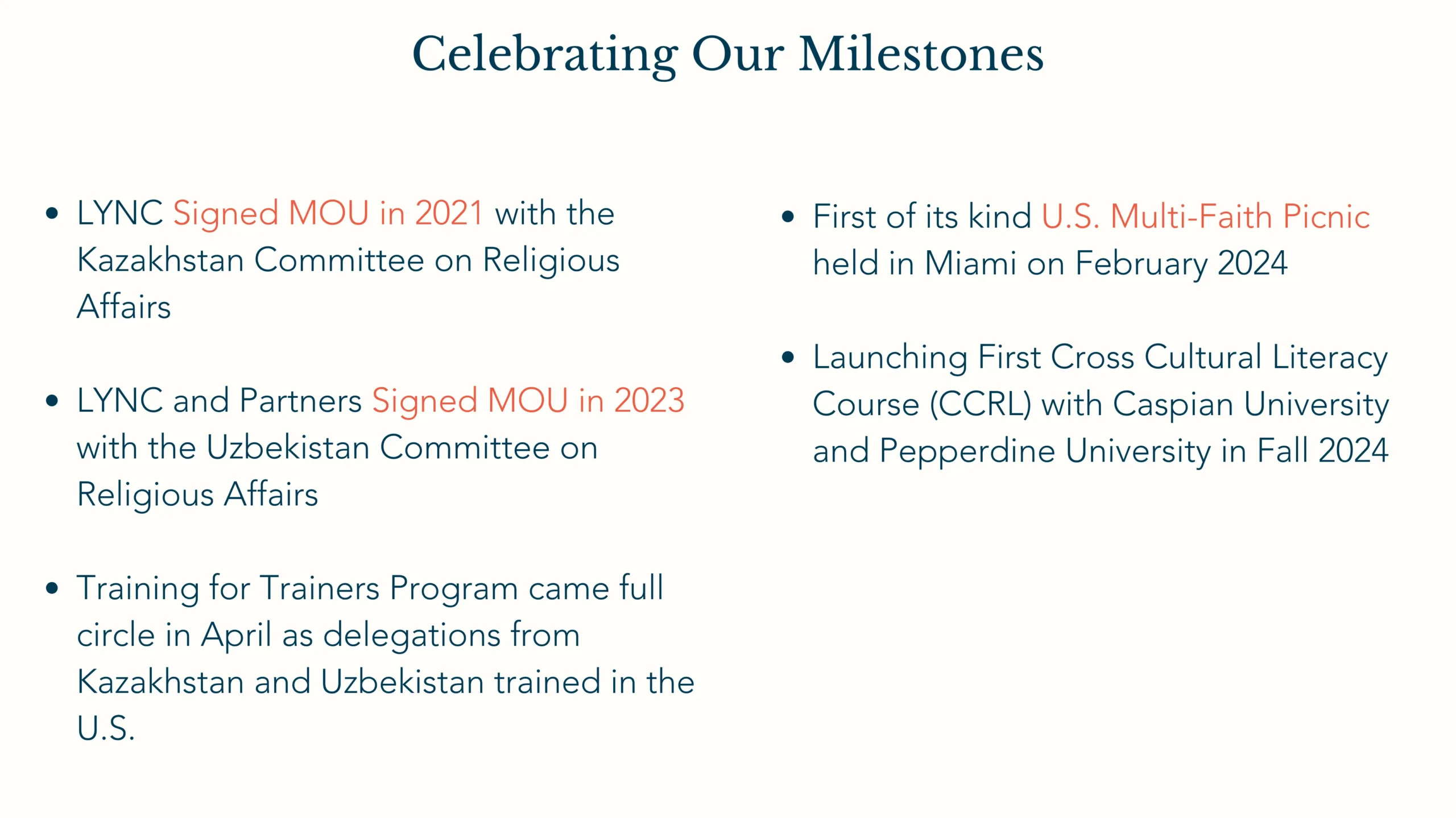Throughout nearly a decade, LYNC has been at the forefront of nurturing religious freedom through what we call relational diplomacy. It all started with our first visit to Kazakhstan in 2013 as a part of the IRF Roundtable delegation, which was followed by a series of co-hosted in-country and international dialogues, multi-faith retreats, signing MOUs, and conducting educational certificate programs.
Through this work, we have developed a model that focuses on three core areas in sequential order to achieve genuine progress in religious freedom and social cohesion:
(a) building multi-faith relationships,
(b) enhancing cross-cultural religious literacy and
(c) encouraging collaboration among religious and government leaders in the context of post-communist countries.
But it is not only that. In Central Asia, we consider a historical and cultural background, the current geopolitical situation, and modern security challenges to assess the situation with religious freedom and develop a solid and effective strategy to advance religious freedom and social cohesion.


